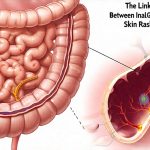The frustrating experience of reacting to foods is all too common in today’s world. Symptoms ranging from bloating and gas to skin rashes and migraines often lead individuals on a quest to identify “food intolerances” through elimination diets, testing, and constant label scrutiny. However, the root cause isn’t always what it seems. While true food allergies and sensitivities are genuine concerns, many symptoms attributed to food intolerance may actually stem from an underlying issue with digestive capacity, specifically inadequate enzyme production. This often overlooked factor can mimic a wide range of intolerances, leading people down incorrect paths in their dietary choices and potentially missing the real source of their discomfort.
The digestive system is a remarkably complex process, relying on a cascade of enzymes to break down food into absorbable nutrients. When this enzymatic breakdown is compromised, undigested food particles can irritate the gut lining, triggering inflammatory responses that manifest as intolerance-like symptoms. This isn’t necessarily an allergy – it’s a consequence of the body struggling to properly process what’s been consumed. Understanding the connection between low enzyme production and perceived food intolerances is crucial for accurate diagnosis and effective management, shifting the focus from restrictive diets to supporting optimal digestive function.
The Role of Digestive Enzymes
Digestive enzymes are biological catalysts that accelerate chemical reactions, in this case, breaking down complex food molecules into simpler forms the body can use. Different enzymes target different macronutrients: amylase breaks down carbohydrates; protease breaks down proteins; and lipase breaks down fats. Beyond these primary enzymes, others like lactase (for lactose digestion) and sucrase-isomaltase (for sugar breakdown) are essential for specific components of the diet. A deficiency in any one or more of these enzymes can lead to incomplete digestion and subsequent symptoms.
The production of digestive enzymes isn’t always consistent; it depends on factors like age, genetics, overall health, and dietary habits. As we age, enzyme production naturally declines, making older adults more susceptible to digestive issues. Certain medical conditions, such as pancreatic insufficiency or inflammatory bowel disease, can also impair enzyme synthesis. Furthermore, a diet lacking in essential nutrients or consistently high in processed foods can further diminish enzymatic function over time. Insufficient enzyme production doesn’t eliminate the food; it makes its digestion inefficient and potentially irritating. This is similar to how functional GI disorders can present.
Essentially, when enzymes are lacking, undigested food ferments in the gut, creating gas, bloating, and discomfort. This can closely resemble symptoms of a food intolerance, leading to misdiagnosis and unnecessary dietary restrictions. It’s important to remember that an “intolerance” often describes a reaction to food, not necessarily an inherent problem with the food itself. In many cases, the reaction is due to the body’s inability to properly process it.
Common Enzyme Deficiencies & Mimicked Intolerances
Several specific enzyme deficiencies are frequently linked to symptoms that resemble common food intolerances. Lactase deficiency, for instance, is the underlying cause of lactose intolerance, leading to bloating, gas, and diarrhea after consuming dairy products. However, similar symptoms can arise from a general lack of carbohydrate-digesting enzymes (amylase, sucrase-isomaltase) even without a specific lactase deficiency – effectively mimicking a broader carbohydrate intolerance. This can also be caused by how food sensitivities impact the digestive system.
Protein digestion relies heavily on proteases, and deficiencies here can lead to undigested protein fragments entering the bloodstream, potentially triggering immune responses and inflammatory reactions that resemble allergies or sensitivities to certain proteins (like gluten). Similarly, lipase deficiency impairs fat digestion, resulting in symptoms like steatorrhea (fatty stools), abdominal discomfort, and even vitamin deficiencies. These symptoms are frequently mistaken for fat malabsorption issues or intolerances to fatty foods. The key is recognizing that the issue isn’t necessarily a sensitivity to the food, but an inability to digest it. It’s helpful to understand enzyme deficiency symptoms can overlap with IBS.
Furthermore, conditions like Small Intestinal Bacterial Overgrowth (SIBO) can interfere with normal enzyme production and function. SIBO leads to bacterial fermentation of undigested carbohydrates, creating gas and bloating that mimic carbohydrate intolerance. Addressing the underlying SIBO is often more effective than simply eliminating carbohydrates from the diet. Diagnosing these deficiencies isn’t always straightforward; specialized testing (discussed below) can provide valuable insights.
Testing for Enzyme Deficiency vs Food Intolerance
Differentiating between enzyme deficiency and true food intolerance requires a careful diagnostic approach. Traditional allergy testing, like skin prick tests or IgE blood tests, identify allergic reactions – immediate immune responses to specific proteins. These are different from intolerances, which are typically delayed and don’t involve the same immunological mechanisms. Food intolerance testing often relies on IgG antibody tests, but their validity is widely debated within the medical community; elevated IgG levels simply indicate exposure to a food, not necessarily an intolerance.
Testing for enzyme deficiencies can be more reliable. A hydrogen breath test can diagnose lactose or carbohydrate malabsorption by measuring hydrogen gas produced during fermentation of undigested carbohydrates in the gut. Stool elastase testing assesses pancreatic function and can identify exocrine pancreatic insufficiency, which leads to insufficient digestive enzyme production. More advanced tests, like fecal pancreatic enzyme-1 (FPE-1) testing, offer greater accuracy.
However, it’s important to note that these tests aren’t always conclusive. A comprehensive assessment by a healthcare professional is crucial. This includes detailed symptom history, dietary analysis, and potentially functional medicine testing to identify underlying digestive issues beyond simple enzyme deficiencies – things like gut permeability or inflammatory markers. A well-rounded approach is far more effective than relying solely on self-diagnosis or questionable online tests. It’s also important to consider hormonal imbalance as a potential factor.
Supporting Enzyme Production & Digestive Health
Once an enzyme deficiency is identified (or suspected), there are several strategies to support optimal digestion and reduce symptoms. One option is enzyme supplementation – taking digestive enzymes with meals to aid in food breakdown. These supplements should be tailored to the specific deficiencies identified or suspected, such as lactase for lactose intolerance or a broad-spectrum digestive enzyme blend for general malabsorption.
However, supplementation isn’t always the long-term solution. Focusing on lifestyle and dietary changes can promote natural enzyme production and improve overall digestive health. This includes:
1. Consuming a nutrient-rich diet with adequate protein, vitamins, and minerals – particularly zinc, which is essential for enzyme synthesis.
2. Reducing stress levels, as chronic stress can impair digestive function.
3. Chewing food thoroughly to initiate the digestive process and reduce the burden on the intestines.
4. Incorporating fermented foods (like yogurt, kefir, sauerkraut) to support gut health and promote beneficial bacteria that aid in digestion.
Addressing underlying gut issues like SIBO or leaky gut is also crucial. This may involve dietary modifications, probiotic supplementation, or other therapeutic interventions guided by a healthcare professional. The goal isn’t just to mask symptoms but to restore optimal digestive function. Ultimately, recognizing the potential role of low enzyme production can unlock a more accurate and effective approach to managing food-related discomfort, moving beyond restrictive diets and towards lasting digestive wellbeing. Consider cooking methods to help reduce symptoms as well. Also, be aware that one intolerance can sometimes lead to others. Lastly, consider if food intolerances cause eye puffiness?


















